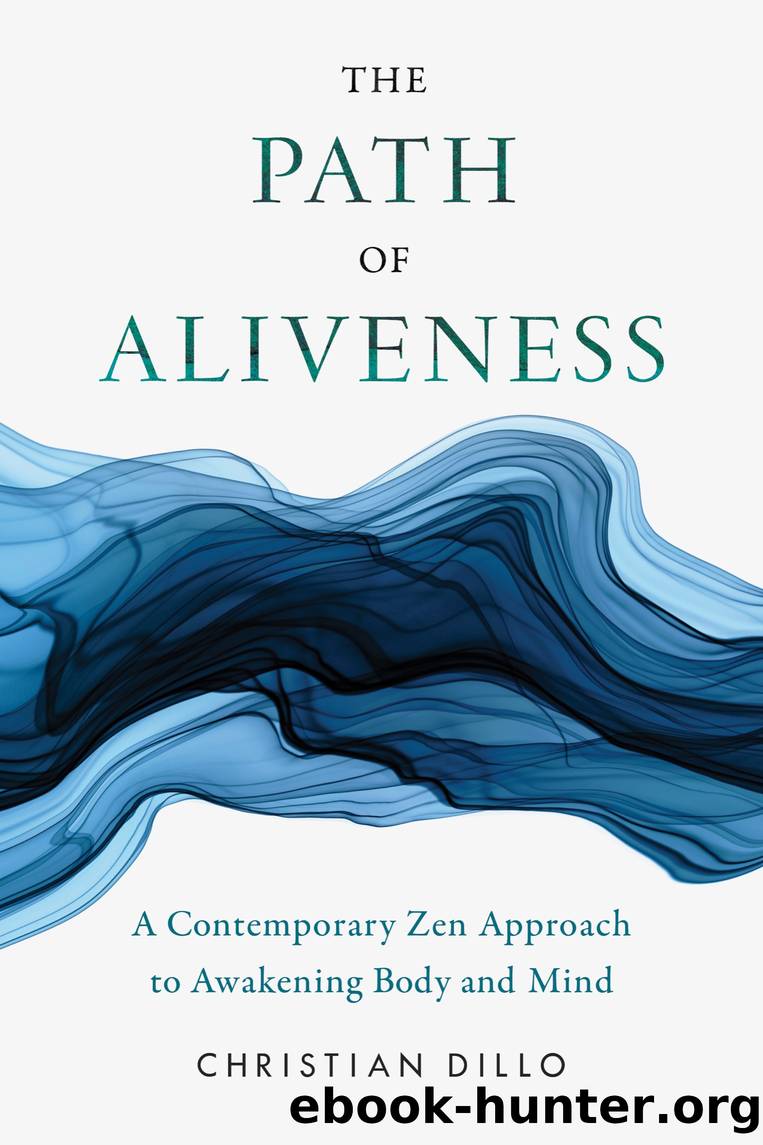The Path of Aliveness by Christian Dillo

Author:Christian Dillo [Dillo, Christian]
Language: eng
Format: epub
Publisher: Shambhala
Published: 2022-05-17T00:00:00+00:00
PART THREE
WISDOM
13
What Is Wisdom?
Liberation is a prerequisite for wisdom, and wisdom is an extension of liberation. The guiding question for wisdom is: How can I live and act in accord with how things actually exist? As long as I am mired in reactivity, I donât have a mind open enough for that; instead, I want things to be in accord with my preferences.
In a koan story, when a monk asks about the fundamental teaching the Buddha conveyed over the course of his lifetime, Zen master Yunmen says, âAn appropriate response.â[1]
In Western rhetoric, the ancient art of speaking, appropriateness is the core concept. Your speech, so the idea goes, can only be effective if it is in right relation to yourself (the speaker), your audience, the subject matter, and the situation in which the speech is given. Zen more or less shares this idea but extends it beyond speech to any expression. Any thought, speech, or action is supposed to be appropriate not only for the four variables listed above but for the complexity of the entire worldâthe âten thousand dharmas,â as the tradition refers to it. The questions then become, How can we tune ourselves to the ten thousand dharmas? How can we let the ten thousand dharmas gather within us and inform our responses?
Because everything is complex and changing at all times, there is no way to prescribe the ârightâ response in advance. Each moment is unique and fundamentally unpredictable. To âknowâ means to live the present based on the experiences of the past. There are some who will argue that big data is changing this situation. It is slowly and eerily becoming common knowledge that your social media account âknowsâ you better than your friends, your spouse, and even you yourself do. While statistical probabilities are good enough for certain applicationsâwhether motivated by good or manipulative intentionsâthey say nothing definitive about this one singular action now. What brings me into accord with this very situation now? What action is appropriate, and with what words and gestures should it be enacted?
As Iâve mentioned before, in Zen we say, âNot knowing is most intimate.â Not-knowing should not be confused with ignorance. Not-knowing is not the removal of knowing but its deep reevaluation. Not-knowing means giving up on the idea that one could know in advance or once and for all, or that the knowledge of the past will suffice for the present and the future. Not-knowing is an indirect way of pointing toward a different kind of knowing that is nonconceptual and nonhabitual. A knowing that, instead, functions through attunement to an implicit order.
The word intuition comes to mind, and it has been used a lot in the Western translations of Zen texts. It points to contents of mind that arise contextually and in nonlinear ways. These intuitions come with the power of situational truth, a power the spiritually inclined feel should or even must be followed, while rationalists consider it, well, irrational. We come close to what a mind of not-knowing is like when we characterize it as a stream of intuitions.
Download
This site does not store any files on its server. We only index and link to content provided by other sites. Please contact the content providers to delete copyright contents if any and email us, we'll remove relevant links or contents immediately.
| Philosophy | Spirituality |
The Way of Zen by Alan W. Watts(6614)
Ego Is the Enemy by Ryan Holiday(5448)
The Art of Happiness by The Dalai Lama(4130)
The Book of Joy by Dalai Lama(3986)
Why Buddhism is True by Robert Wright(3452)
Spark Joy by Marie Kondo(3302)
Shift into Freedom by Loch Kelly(3199)
Happiness by Matthieu Ricard(3047)
A Monk's Guide to a Clean House and Mind by Shoukei Matsumoto(2915)
The Lost Art of Good Conversation by Sakyong Mipham(2654)
The Meaning of the Library by unknow(2571)
The Unfettered Mind: Writings from a Zen Master to a Master Swordsman by Takuan Soho(2311)
The Third Eye by T. Lobsang Rampa(2266)
Anthology by T J(2213)
Red Shambhala by Andrei Znamenski(2199)
The Diamond Cutter by Geshe Michael Roach(2061)
Thoughts Without A Thinker: Psychotherapy from a Buddhist Perspective by Epstein Mark(2025)
Twilight of Idols and Anti-Christ by Friedrich Nietzsche(1894)
Advice Not Given by Mark Epstein(1880)
